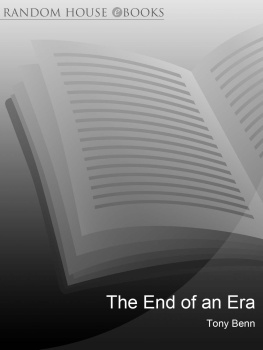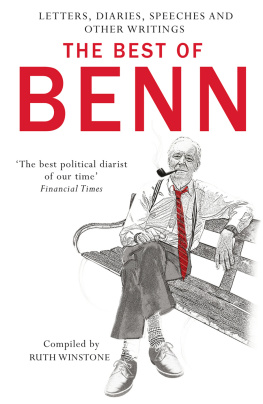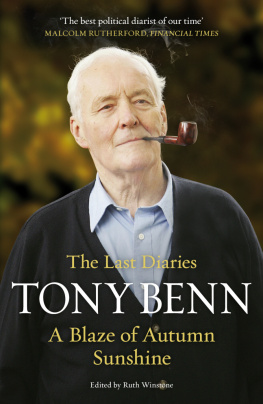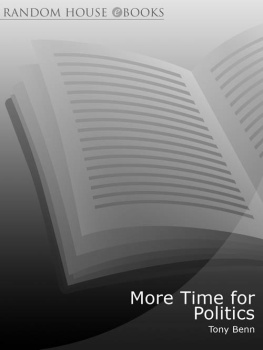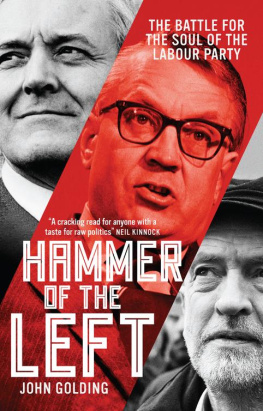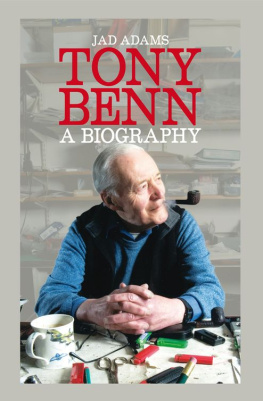Tony Benn - Office Without Power: Diaries, 1968-72
Here you can read online Tony Benn - Office Without Power: Diaries, 1968-72 full text of the book (entire story) in english for free. Download pdf and epub, get meaning, cover and reviews about this ebook. year: 1989, publisher: Arrow, genre: Politics. Description of the work, (preface) as well as reviews are available. Best literature library LitArk.com created for fans of good reading and offers a wide selection of genres:
Romance novel
Science fiction
Adventure
Detective
Science
History
Home and family
Prose
Art
Politics
Computer
Non-fiction
Religion
Business
Children
Humor
Choose a favorite category and find really read worthwhile books. Enjoy immersion in the world of imagination, feel the emotions of the characters or learn something new for yourself, make an fascinating discovery.

Office Without Power: Diaries, 1968-72: summary, description and annotation
We offer to read an annotation, description, summary or preface (depends on what the author of the book "Office Without Power: Diaries, 1968-72" wrote himself). If you haven't found the necessary information about the book — write in the comments, we will try to find it.
Office Without Power: Diaries, 1968-72 — read online for free the complete book (whole text) full work
Below is the text of the book, divided by pages. System saving the place of the last page read, allows you to conveniently read the book "Office Without Power: Diaries, 1968-72" online for free, without having to search again every time where you left off. Put a bookmark, and you can go to the page where you finished reading at any time.
Font size:
Interval:
Bookmark:
Tony Benns second volume of diaries, which spans the years 1968-72, is a unique record of British politics as observed both from the heart of the Cabinet and the Labour Party.
George Browns spectacular resignation and Cecil Kings plot to overthrow Wilson are just two of the events which dominate the opening chapter, and introduce the last years of Labours increasingly demoralised government.
And for the first time in a political diary, Labours experience of Opposition after the unexpected and shattering defeat of 1970 is revealed. Here, too, are recorded the bitter arguments over the Common Market, in which Tony Benn emerged as the principal advocate of a referendum on Britain's entry and which foreshadowed the Labour/SDP schism of 1981. The result is a fascinating and invaluable document of the times.
Tony Benn, who first entered Parliament in 1950, has been the Labour MP for Chesterfield since March 1984. He was elected to the National Executive Committee of the Labour Party in 1959, and was the Chairman of the Party in 19712. He has been a Cabinet Minister in every Labour Government since 1964, holding the positions of Postmaster General, Minister of Technology and Minister of Power. From 19749 he was Secretary of State for Industry, later Secretary of State for Energy and one-time President of the Council of Energy Ministers of the European Community. He contested the leadership of the Labour Party in 1976 and in 1988.
He is the author of nine previous books, including Arguments for Socialism, Arguments for Democracy, Fighting Back and Out of the Wilderness, the first volume of Diaries which was published to great critical acclaim in 1987. He holds four Honorary Doctorates from British and American Universities. He is married to Caroline, and they have four children and five grandchildren.
Also in Arrow by Tony Benn
OUT OF THE WILDERNESS: Diaries 196367
AGAINST THE TIDE: Diaries 197377
Office Without Power
DIARIES 196872

First Section
Denis Healey with wartime Bomber Command Chiefs (Syndication International)
George Brown, with wife Sophie (Popperfoto)
Facing Nicolae Ceausescu of Rumania (Tony Benns Private Collection)
Signing an agreement with Academician Kirillin (Keystone Collection)
Denis Healey and John Stonehouse (Popperfoto)
Anthony and Susan Crosland in USSR (Popperfoto)
Roy Jenkins during the Common Market controversy (Popperfoto)
Hugh Scanlon addressing the Labour Party Conference (Syndication International)
Incoming TUC General Secretary Vic Feather (Popperfoto)
Outgoing TUC General Secretary George Woodcock (Popperfoto)
Jack Jones during the 1970 dockers strike (Tony Benns Private Collection)
The calm before the storm (Syndication International)
Workers delegation marching to the House of Commons (Central Press Photos Ltd)
Comrades in Arms (Glasgow Herald)
Vic Feather and Hugh Scanlon (Popperfoto)
Two Lords and a Commoner (Keystone Collection)
Emergency meeting during the Rolls Royce crisis (Daily Telegraph)
Caroline Benn addressing an Education Conference (Tony Benns Private Collection)
The Benn family (Tony Benns Private Collection)
President Nixon with Harold Wilson (Syndication International)
Nixon leaving Buckingham Palace (Popperfoto)
Wilson shaking hands with the Italian President (Popperfoto)
Second Section
Gough Whitlam, leader of the Australian Labour Opposition (Popperfoto)
Golda Meir during her British visit (Popperfoto)
Soviet Prime Minister Kosygin at a football match (Popperfoto)
President Pompidou with Ted Heath (Syndication International)
Willy Brandt with Ted Heath (Syndication International)
With Alec Issigonis, father of the Mini (Tony Benns Private Collection)
Supporting Lockheed Airbus (Tony Benns Private Collection)
Microchip Minister (Tony Benns Private Collection)
Those Magnificent Men in their Flying Machines (Tony Benns Private Collection)
Semi-submersible Minister (Keystone Collection)
With Caroline in Peking (Camera Press)
Mirror Magnates (Syndication International)
Press Barons (Syndication International)
Joan Lestor campaigning in Eton and Slough (Syndication International)
Enoch Powell on home territory (Syndication International)
Alf Robens, NCB Chairman-turned-industrialist (Popperfoto)
Lord Rothschild (Syndication International)
Frank Kearton (Syndication International)
Denning Pearson of Rolls Royce (Syndication International)
Pat Blackett, wartime founder of operational research (Popperfoto)
Bill Penney, wartime pioneer of atomic power (Syndication International)
Franklin, The Times, 27 May 1968 ().
This book is dedicated, with love, to my life-long friend and partner in socialism, Caroline, and the family, who went through it all too.
THIS SECOND VOLUME of my Diaries could not have been prepared for publication without the effort and advice of a formidable team of people.
Sheila Hubacher and Ruth Hobson bore the brunt of the transcription of the Diaries and began the task of editing the raw material.
Ruth Winstone, as Editor, was responsible for researching and preparing the book for publication and overseeing the project at every stage.
I must also record my deep appreciation to Century Hutchinson, who have undertaken the publishing of the whole series, which will run into several volumes, reflecting the most interesting periods of my political and ministerial life.
In particular, I would like to thank Richard Cohen, who has always expressed his confidence in the project, and Kate Mosse, who gave detailed attention, encouragement and advice throughout.
THIS VOLUME REPRESENTS only a third of the original Diary dictated by Tony Benn over five years, in both Government and Opposition. The guiding consideration when making such substantial cuts was to preserve as much as possible of the inherent balance between Benns interests and activities as a member of the Cabinet, as a leading Labour Party figure and as a constituency MP. Within this framework, particular issues obviously prevail: the arguments over expenditure cuts during 1968, for example, and the protracted and profound differences over the Common Market which savagely divided the Labour Party in 1971 and 1972. Recurring passages have therefore been edited to reflect the contemporary significance of the discussions and decisions taken, whilst reducing repetition and excessive detail.
The absolutely raw Diary, with all its quirks of transcription from audiotape to the written word, in future will be available for those intent on examining the minutiae which did not survive the blue pencil, or for those wishing to follow every development of a particular theme.
A diary of this kind inevitably involves a generation gap. What does Pinkville mean to readers born during the years of the Vietnam War? Or UCS, on everyones lips in 1971? The choice of footnotes and chapter notes is, in this sense, largely intuitive and does not attempt to provide a comprehensive political background. Appendices give full details of the Labour Government, Shadow Cabinet and National Executive Committees between 1968 and 1972; biographical notes of leading figures both political and personal appear in the Principal Persons at the end of the book.
Font size:
Interval:
Bookmark:
Similar books «Office Without Power: Diaries, 1968-72»
Look at similar books to Office Without Power: Diaries, 1968-72. We have selected literature similar in name and meaning in the hope of providing readers with more options to find new, interesting, not yet read works.
Discussion, reviews of the book Office Without Power: Diaries, 1968-72 and just readers' own opinions. Leave your comments, write what you think about the work, its meaning or the main characters. Specify what exactly you liked and what you didn't like, and why you think so.

